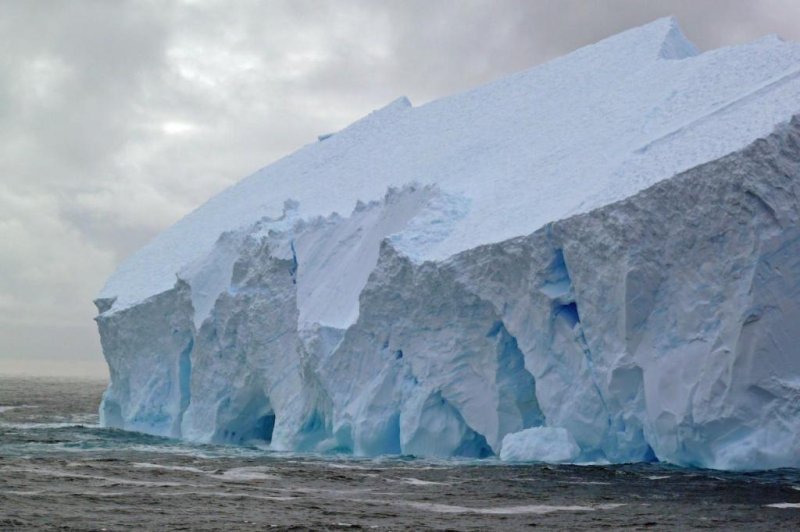Researchers say the potential collapse of the West Antarctic ice sheet has been underestimated. Photo by Michael Weber
April 30 (UPI) -- The possible collapse of the West Antarctic Ice Sheet, which has been associated with global sea-level rise, has been significantly underestimated, according to a new study from Harvard researchers.
The report, published Friday in Science Advances, demonstrates that the sea level rise in a warming world could be greater than anticipated.
The study focuses on new calculations for a water expulsion mechanism of the ice sheet. This occurs when the solid bedrock of the sheet sits below sea level, lifts up as ice melts and pushes water from the surrounding area into the ocean.
The water expulsion mechanism results in the decrease of the total weight of the ice sheet while adding to global sea-level rise.
The new predictions show that in the case of the total collapse of the sheet, global sea-level rise would be amplified by an additional meter within 1,000 years.
"The magnitude of the effect shocked us," study co-lead Linda Pan said in a press release.
"Previous studies that had considered the mechanism dismissed it as inconsequential," said Pan, a doctoral student in earth and planetary science at Harvard.
One simulation Pan and Evelyn Powell, also co-lead on the study, performed indicated that by the end of this century, global sea rise caused by the melting of the West Antarctic Ice Sheet would increase 20 percent.
The two began research while working on another sea-level project. Noticing more water expulsion from the West Antarctic Ice Sheet, they switched their focus to it.
Their study considered the low viscosity, or the easy flowing material of the Earth's mantle, beneath West Antarctica. By incorporating the low viscosity into their calculations, they realized water expulsion occurred much faster than previous models predicted.
"If the West Antarctic Ice Sheet collapsed, the most widely cited estimate of the resulting global mean sea level rise that would result is 3.2 meters," said Powell. "What we've shown is that the water expulsion mechanism will add an additional meter, or 30 percent, to the total."
Currently, Antarctica's ice shelves serve as a protective buffer, insulating interior glaciers from warm water currents and rising atmospheric temperatures. They also serve as a dam, counteracting gravity's influence on the southern continent's interior ice.
Scientists have previously shown that influxes of warm coastal water are driving the loss of ice among Western Antarctica's largest glaciers.















